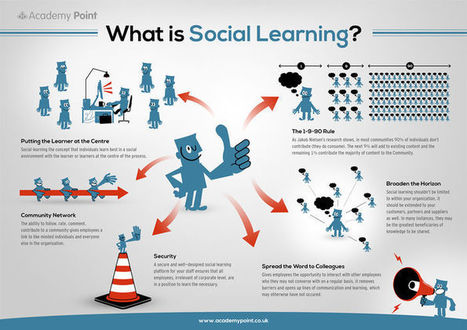Formal knowledge representation (KR) is about building models of the world, of a particular domain or a problem, which allow for automatic reasoning and interpretation. Such formal models are called ontologies and can be used to provide formal semantics (i.e., machine-interpretable meaning) to any sort of information: databases, catalogs, documents, web pages, etc. The association of information with such formal models makes the information much amenable to machine processing and interpretation.
Cit. Atanas Kiryakov. In Semantic Web Technologies: Trends and Research in Ontology-based Systems; John Davies (Editor), Rudi Studer (Co-Editor), Paul Warren (Co-Editor). pp. 115-138 John Wiley & Sons, Europe.
Learn more / En savoir plus / Mehr erfahren:
https://www.scoop.it/t/21st-century-learning-and-teaching/?&tag=Ontology
Via Gust MEES, juandoming



 Your new post is loading...
Your new post is loading...











Formal knowledge representation (KR) is about building models of the world, of a particular domain or a problem, which allow for automatic reasoning and interpretation. Such formal models are called ontologies and can be used to provide formal semantics (i.e., machine-interpretable meaning) to any sort of information: databases, catalogs, documents, web pages, etc. The association of information with such formal models makes the information much amenable to machine processing and interpretation.
Cit. Atanas Kiryakov. In Semantic Web Technologies: Trends and Research in Ontology-based Systems; John Davies (Editor), Rudi Studer (Co-Editor), Paul Warren (Co-Editor). pp. 115-138 John Wiley & Sons, Europe.
Learn more / En savoir plus / Mehr erfahren:
https://www.scoop.it/t/21st-century-learning-and-teaching/?&tag=Ontology